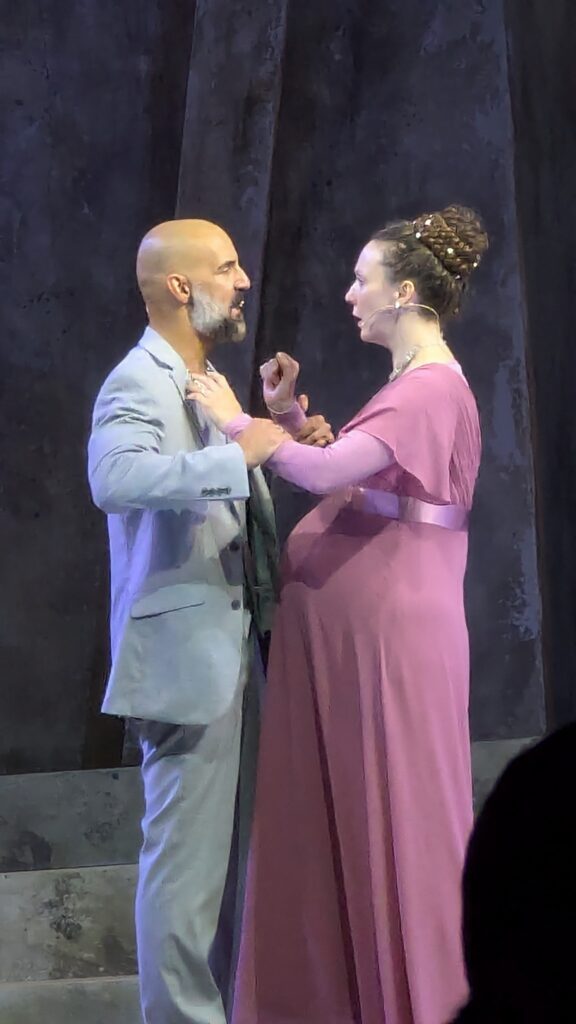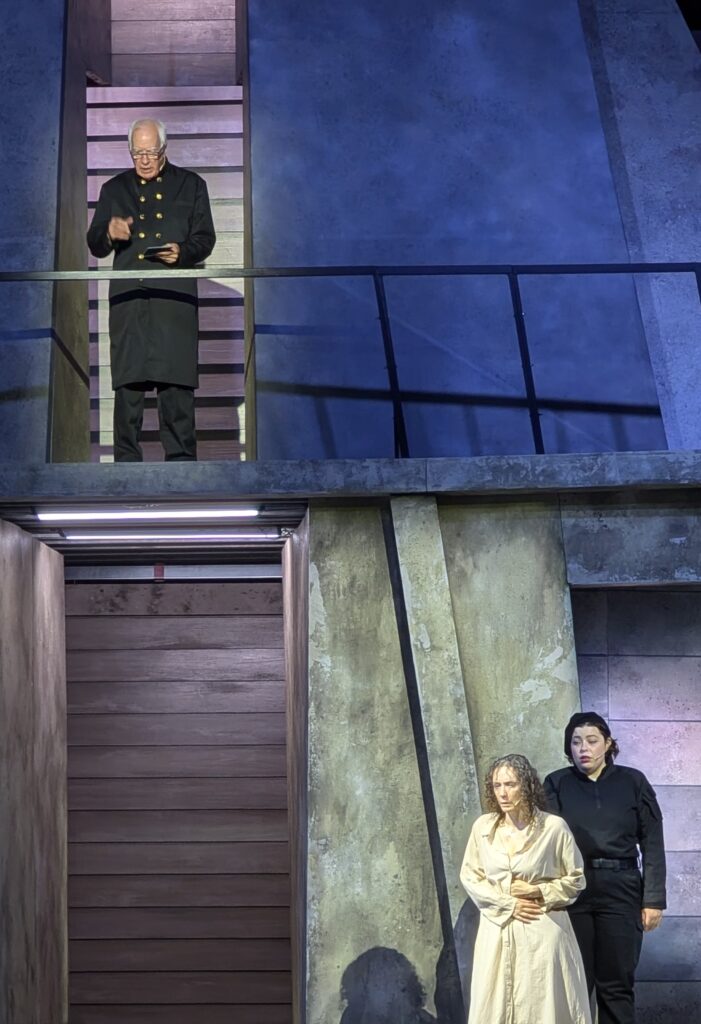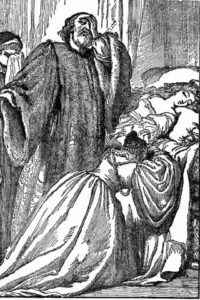I want to say our Commonwealth Shakespeare streak continues, but we actually missed a show in 2019 when my mom was sick. Cymbeline, which I’ve never seen, but have no real personal feelings for. Other than that hiccup, the 2024 show marks 19 shows we’ve seen by this group at this location. We also missed back in 2005. Hamlet, which I’m still salty about.
I have no special love for The Winter’s Tale, a later and therefore lesser-known play, filled with difficult to pronounce characters (Autolycus? Perdita? Polixenes?) and the usual kitchen-sink of Shakespearean comedy switcheroos. I tend to only refer to it to make a rapidly aging joke about how it’s Shakespeare’s Maury Povich Show. Leontes, you are the father!
Seriously, though, quick plot summary for those who need it. This is really two plays smooshed together at the end. Leontes and Polixenes, kings of neighboring nations, are long time best friends. Leontes becomes paranoid that Polixenes got Leontes’ wife, Hermione, pregnant. Polixenes flees the country, Leontes jails his pregnant wife for treason. The Oracle says that Leontes is wrong, they’re innocent, Leontes still clings to his paranoid belief even after his son and wife both die of grief. He refuses to take care of his new baby daughter and demands that she be left somewhere to survive on her own if that’s what the gods want. That’s our first story.
The second half leaps forward 16 years — Shakespeare literally makes “Time” a character who comes out to talk to the audience — and we meet teenage Perdita, whose been raised by the kindle shepherd that found her. Perdita’s in love with Florizel, son of Polixenes. Polixenes is having none of it, however, as he will only allow his son to marry a princess. See where it’s all going? This is a Shakespearean comedy, so as I always tell people with a handwave, “hijinx ensue.” All is straightened out in the end, Perdita reunites with her father, she gets to be with Florizel because now we know she’s a princess … and oh hey look, Hermione comes back from the dead. That’s Shakespeare for you.
So how was this particular production? Let’s start with some pictures! Click on individual pictures to expand.







I quite loved it, honestly. I was afraid that my family would not be able to follow it very well, for all the reasons I listed above. You can barely figure out from moment to moment who is who, much less what’s happening. But from the opening scene, they had it just right. Leontes was clearly a jealous man driven to near insanity as his paranoia consumed him. It’s quite dark. We’re at a comedy, this king has been presented with his baby daughter, and he’s literally screaming, “Throw it in the fire.” The music was ominous. It was scary, as it perhaps should be, to set up the second half.
The women – Hermione and her friend Paulina – pretty much stole the show. Both did an outstanding job of standing on a stage full of men, knowing full well that they’re entirely powerless, and yet speaking their minds in full voice, with heads held high. You knew that they had been wronged, and waited for the men to get what was coming to them.
The longer I go with these the more uncomfortable I get because I don’t want to misrepresent anyone, or leave anyone out. So what I’ll do this year is leave a link to the play info so people can explore the individual artists’ stories in their own words rather than mine:

 Here’s a simple game. Pick a play. Now pretend you’re doing a production where the gimmick is that it’s told from a different character’s point of view than normal. Which play do you pick, which character and how does the play change?
Here’s a simple game. Pick a play. Now pretend you’re doing a production where the gimmick is that it’s told from a different character’s point of view than normal. Which play do you pick, which character and how does the play change?
 No, that’s not a Winter’s Tale reference. That’s a Harry Potter reference. Psych. 🙂
No, that’s not a Winter’s Tale reference. That’s a Harry Potter reference. Psych. 🙂 Who’s excited for the return of Shakespeare Uncovered?
Who’s excited for the return of Shakespeare Uncovered?